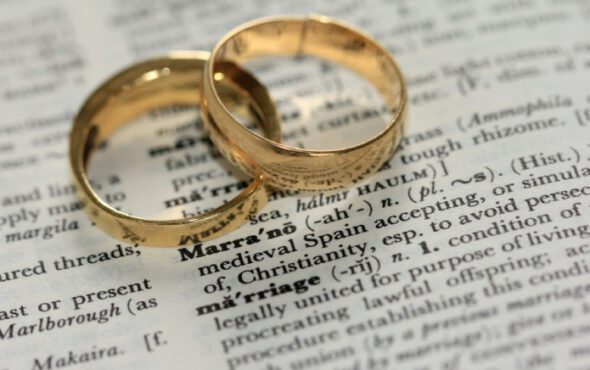
When France legalised gay marriage exactly 10 years ago, Nicolas and his partner David couldn’t wait to tie the knot. A decade on, the couple still cherish the memories of their town hall wedding in a suburb of Paris.
“It was something else. The beautiful town hall and the mayor dressed in the red, white and blue sash. She made a beautiful speech about how proud she was to officiate her first same-sex wedding, it was very, very moving,” Nicolas recalled.
Beyond giving LGBTQ+ couples the chance to celebrate their love in the same way as heterosexual couples, the landmark change brought with it new rights related to pension entitlements, inheritance and adoption.
Previously, same-sex couples were limited to civil unions, which were introduced in 1999.
Colloquially known as “marriage light”, they include a contract specifying how joint assets should be split if a couple later separates and offer other legal benefits such as the right to file a joint tax return.
But they exclude some rights given to married couples, including automatic inheritance for spouses and the ability to adopt a child as a couple.
For Nicolas, 51, a police officer, it was important that switching from a civil union to a full marriage meant his spouse would have the right to claim part of his pension if he died.
“It was an additional legal protection,” Nicolas told Openly, asking not to use his full name.
‘One of the happiest days of my life’
When the “marriage for all” law was first proposed in France, it sparked bitter debates in parliament and demonstrations both in favour and in protest on the streets.
About 60% of French people supported equal marriage in 2021, according to an Ipsos poll, while the legislation was followed by other reforms such as a 2021 ban on LGBTQ+ conversion therapy and laws allowing some single women and lesbians access to in-vitro fertilisation (IVF).
Since the law was implemented, about 70,000 same-sex couples have married, representing about 3% of all marriages annually, according to the national statistics office.
Parisians Marc and Karim – who had lived happily in a civil partnership for nine years – initially had no desire to join them.
“I thought marriage was very conventional,” said Marc, who asked for their surnames to be withheld.
But when Karim was diagnosed with cancer and his health suddenly deteriorated in October 2022, he was admitted to palliative care where they married in the hospital’s garden.
“It was a real wedding. We got dressed up, invited our loved ones and it was honestly one of the happiest days of my life,” said Marc.
Five days later Karim died.
Marc said the marriage had allowed him to take possession of his husband’s body and fulfill his final wish to be buried in Normandy, which he said Karim’s family had opposed.
But he was also surprised by its symbolic importance.
“There was a strength conveyed by this word (husband) which encompassed those 17 years we spent together,” he said.
Reporting by Joanna Gill.
GAY TIMES and Openly/Thomson Reuters Foundation are working together to deliver leading LGBTQ+ news to a global audience.



